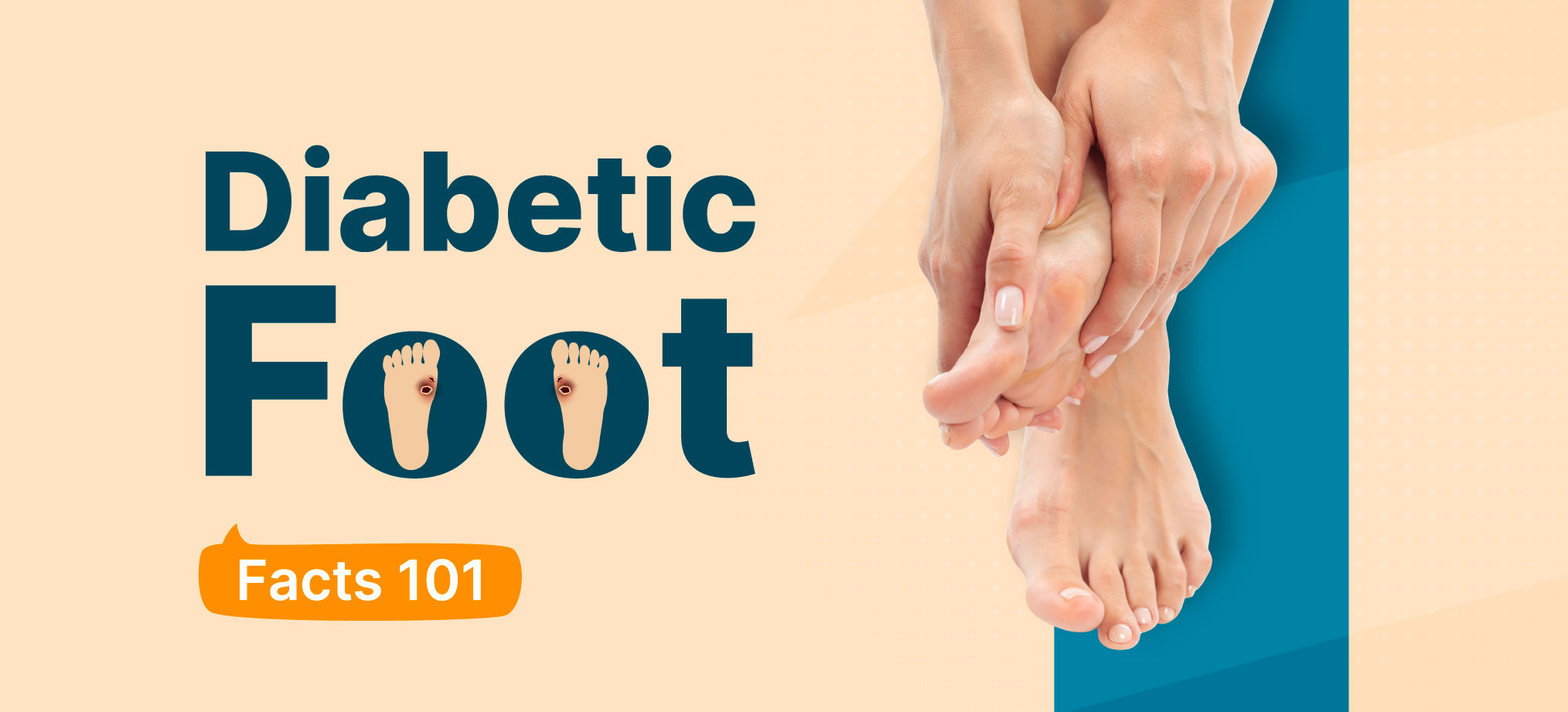Diabetes Management
Understanding Estimated Average Glucose (eAG): What Does It Mean?
3 min read
By Apollo 24|7, Published on - 15 September 2023
Share this article
0
0 like

Managing diabetes involves keeping a close eye on blood sugar levels. Estimated Average Glucose (eAG), or HbA1c (%) is used by healthcare providers and individuals with diabetes to measure long-term control. In this blog, we shall explore what eAG means, how it relates to your regular blood sugar measurements, and why it is a crucial tool in diabetes management.
What Is eAG?
Estimated Average Glucose (eAG) is a numerical value that provides an estimate of your average blood sugar level over a certain period, typically over the past 2 to 3 months. It's expressed in milligrams per deciliter (mg/dL) or millimoles per liter (mmol/L).
eAG vs. A1C: What's the Difference?
eAG and A1C are both important measurements in diabetes management, but they show information in different ways. A1C is a percentage that tells you the average amount of sugar attached to your red blood cells over the last 2-3 months. On the other hand, eAG gives you the same kind of average blood sugar information, but it's presented in the same units you see when you check your blood sugar every day. This makes it simpler for people to connect their regular blood sugar tests with their long-term control.
Why is eAG Important?
eAG serves several important purposes in diabetes management:
· Understanding Control: It offers a more relatable perspective on your long-term blood sugar control. Instead of percentages, you see a number that you are more familiar with. This makes it easier to grasp how your diabetes management is progressing.
· Treatment Adjustments: eAG helps healthcare providers determine whether your current treatment plan is effective. If your eAG is consistently above or below your target range, adjustments can be made to your medication, diet, or exercise regimen.
· Goal Setting: It allows you to set realistic blood sugar targets. By knowing your eAG, you can work with your healthcare team to establish specific goals for better control.
· Motivation: Tracking eAG provides motivation to maintain healthy habits. When you see improvements in your eAG, it's a tangible indicator that your efforts are paying off.
How Is eAG Calculated?
The formula for calculating eAG is derived from the A1C value using the following equation:
eAG (mg/dL) = (28.7 × A1C) - 46.7
For those using the mmol/L unit, the equation is slightly different:
eAG (mmol/L) = (1.59 × A1C) - 2.59
Healthcare providers often use eAG to complement A1C results, offering a more comprehensive picture of your diabetes management.
Conclusion
Estimated Average Glucose (eAG) is a valuable tool that provides a clear and relatable way to assess your long-term blood sugar control, enabling better communication with healthcare providers and more effective diabetes management. By understanding and tracking your eAG, you can make informed decisions about your treatment plan, set realistic goals, and take steps towards a healthier and well-managed life. Always consult your healthcare provider for guidance on interpreting and using eAG data to optimize your diabetes care.
Diabetes Management
Consult Top Diabetologists
View AllLeave Comment
Recommended for you

Diabetes Management
Can Diabetes Be Diagnosed Without Symptoms?
This article emphasises the importance of early screening for asymptomatic diabetes to prevent complications and guides readers on diagnostic methods, risk factors, and proactive management strategies.

Diabetes Management
Prevention Tips For Diabetes Foot Infection
In case of uncontrolled diabetes, high blood sugar levels can damage the blood vessels and nerves, resulting in poor blood circulation. This can increase the risk of foot ulcers and infections. The reduced blood flow and loss of sensation in the feet can make it difficult to detect injuries or infections, leading to delayed healing and potential complications.

Diabetes Management
Can People with Diabetes Run a Marathon?
Individuals with diabetes can indeed run marathons, but it requires careful planning and diligent management—diabetes, whether Type 1 or Type 2, can be managed effectively during marathon training and races. Monitoring blood sugar levels, adjusting medication, and maintaining proper nutrition and hydration are crucial. Seeking guidance from healthcare professionals who specialise in diabetes care is vital for a safe and successful marathon journey. Diabetes should not deter anyone from pursuing their marathon dreams with the right strategies and determination.
Subscribe
Sign up for our free Health Library Daily Newsletter
Get doctor-approved health tips, news, and more.
Visual Stories

8 Fruits That are Incredibly Healthy for Diabetes
Tap to continue exploring
Recommended for you

Diabetes Management
Can Diabetes Be Diagnosed Without Symptoms?
This article emphasises the importance of early screening for asymptomatic diabetes to prevent complications and guides readers on diagnostic methods, risk factors, and proactive management strategies.

Diabetes Management
Prevention Tips For Diabetes Foot Infection
In case of uncontrolled diabetes, high blood sugar levels can damage the blood vessels and nerves, resulting in poor blood circulation. This can increase the risk of foot ulcers and infections. The reduced blood flow and loss of sensation in the feet can make it difficult to detect injuries or infections, leading to delayed healing and potential complications.

Diabetes Management
Can People with Diabetes Run a Marathon?
Individuals with diabetes can indeed run marathons, but it requires careful planning and diligent management—diabetes, whether Type 1 or Type 2, can be managed effectively during marathon training and races. Monitoring blood sugar levels, adjusting medication, and maintaining proper nutrition and hydration are crucial. Seeking guidance from healthcare professionals who specialise in diabetes care is vital for a safe and successful marathon journey. Diabetes should not deter anyone from pursuing their marathon dreams with the right strategies and determination.